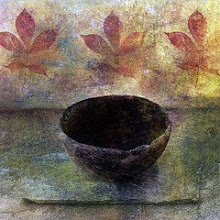
"You, Happier"
Two simple words being used as an advertising campaign by an electronics store.
The idea is, of course, that you will be much happier after you have picked up a new notebook computer or stereo or flat screen television set.
But, is happiness that easily attained or for that matter what is happiness?
From morning to night, we are concerned with our individual welfare, with questions such as what we should eat and wear. Many of us believe that our happiness depends on how successfully we satisfy those personal needs. But is it really the case that our happiness depends on that? No, I do not think so. Actually, the more self-centered we become, the less happy we become.
Two simple words being used as an advertising campaign by an electronics store.
The idea is, of course, that you will be much happier after you have picked up a new notebook computer or stereo or flat screen television set.
But, is happiness that easily attained or for that matter what is happiness?
From morning to night, we are concerned with our individual welfare, with questions such as what we should eat and wear. Many of us believe that our happiness depends on how successfully we satisfy those personal needs. But is it really the case that our happiness depends on that? No, I do not think so. Actually, the more self-centered we become, the less happy we become.
Generally speaking, who is an unhappy person? An unhappy person is a person who cannot forget himself, being always concerned with his individual happiness and welfare. Probably the Buddhist concept of “hell” symbolizes the condition in which one has only himself, only his self-concerns such as what he should eat and wear.
Then, who is a happy person? A happy person is the person who can forget himself, his individual happiness. He is so fascinated with something outside himself that he can forget himself.
What is Happiness in Buddhism?
Instead of chasing after our own happiness, Buddhism teaches us that we might cultivate a mind of compassion, loving kindness, joyfulness, and letting go of our ego-attachment — this can work for ourselves and for the sake of others.
But there’s a catch. If you really want to be truly joyful, you have to forget about what you did for yourself or others. In other words, the no attachment rule still applies. Hook your ego to the outcome of effort and you risk disappointment or loss, as your happiness inevitably subsides.
The material things we think we need to be happy don’t last very long. In a sense, as a Buddhist it’s easy to be happy because there are no conditions. In Buddhism, that means an awareness of a reality as vast and fluid and changing as an ocean.
If you give up the never-ending pursuit of unsustainable happiness, you will eventually become happy. To describe happiness, Buddhists use expressions like ‘no desires, no blind passions, or non-attachment." But non attachment does not mean aloofness — it can mean being very engaged, without being attached to outcomes.
For Buddhists, the highest form of happiness lies in this inner freedom rather than the freedom to acquire and consume. Happiness is determined by one's state of mind rather than by external events. It is not subject to time and decay, or dependent on the acquisition of things and people.
Today, it is what recommends Buddhism to so many people living in societies built around the endless stimulation and satisfaction of individual desires, but which seem to bewilder and oppress people as much as or more than the simpler world to which the Buddha offered his unique therapy.
Buddhism teaches that the mind, not the wallet, is the path to contentment.

No comments:
Post a Comment